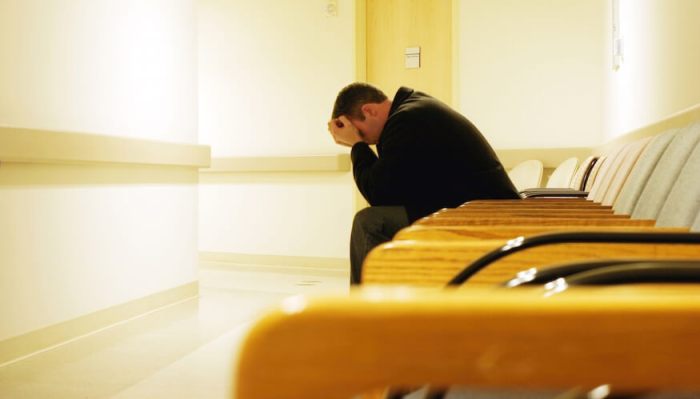Every year in the U.S. one in five adults experiences mental illness. That equates to over 43 million people, according to Mental Health America. In a five-year period, rates of youth suffering from severe depression increased from 5.9 percent in 2012 to 8.2 percent in 2015, and over 1.7 million youth with “major depressive episodes” did not get treated. The numbers say that millions are not alone — yet all too often mental illness is stigmatized. Since 1949, Mental Health Awareness Month has been observed in May to bring awareness, spread resources and destigmatize what it means to have a mental health condition.
In honor of Mental Health Awareness Month, U.K. journalist Hattie Gladwell started a Twitter thread with the hashtag detailing “Things People Have Said About My Mental Illness.” The now-viral thread reveals the worst comments those suffering with mental illness have heard from their friends, family and even professionals meant to offer up support.
“Quote this tweet with the most unhelpful/insensitive thing someone has said to you about your mental illness,” Gladwell tweeted on May 6. “I’ll start: One person told me I didn’t need medication, I just needed to be more motivated to cope with my mental health.”
Since then, the hashtag has gotten thousands of shares, and these tweets really do show how insensitive — whether intentional or not — the world can be when it comes to mental illness.
Mental Health Awareness Month tweets
“‘What do you mean you are disabled by anxiety? We all have anxiety!'” one Twitter user posted, adding, “Anxiety (disorder) from PTSD isn’t what everyone has. Crippling panic attacks and unknown triggers are my daily life. Don’t judge something because you don’t understand.”
#Thingspeoplehavesaidaboutmymentalillness “What do you mean you are disabled by anxiety? We all have anxiety!” Anxiety (disorder) from PTSD isn’t what everyone has. Crippling panic attacks and unknown triggers are my daily life. Don’t judge something because you don’t understand.
— ?NrrrdGrrrl?? (@_NrrrdGrrrl_) May 7, 2018
“‘Everyone has a stressful job, I have a stressful job, what makes you think yours should be treated as better than everyone else?’ – from a therapist after my suicide attempt,” another user wrote. He added, “I asked if he really thought that was helpful, ‘I’m not here to help you, you need to help yourself.'”
“Everyone has a stressful job, I have a stressful job, what makes you think yours should be treated as better than everyone else?” – from a therapist after my suicide attempt.
I asked if he really thought that was helpful, “I’m not here to help you, you need to help yourself”
— Joe (@joesgotcrohns) May 6, 2018
Another wrote: “I told someone I had OCD and their reply was ‘oh so you like to clean then’. I said, ‘no, I struggle with intrusive thoughts and worry about bad things happening’. Their reply then was, ‘oh, so you’re just superstitious?'”
I told someone I had OCD and their reply was “oh so you like to clean then”. I said, “no, I struggle with intrusive thoughts and worry about bad things happening”. Their reply then was, “oh, so you’re just superstitious?” #ThingsPeopleHaveSaidAboutMyMentalIllness https://t.co/deyKPMRiE1
— Lydia ?❄️ (@AlongCameLydia) May 6, 2018
Here are some more eye-openers:
Wow, where to start with this one?!
“Other people have it much worse than you do.”
“Stop feeling sorry for yourself.”
“Everyone else is dealing with life, so why can’t you?”
“You’re being selfish.”#ThingsPeopleHaveSaidAboutMyMentalIllness https://t.co/tPySjTJeJh— Paddy O’Brien (@wolfetone98) May 6, 2018
When manic: ‘Just calm down!’
When psychotic: ‘You should be locked up’
When dissociated: (Police officer) ‘Youre pathetic, drunk at this hour’
When suicidal: ‘If you wanted to die you would have done it.’#ThingsPeopleHaveSaidAboutMyMentalIllness— Jodie Shanks (@JodieShanks) May 8, 2018
I was in therapy and my therapist asked me how i would self harm, when i told her how she told me i was “creative”. #ThingsPeopleHaveSaidAboutMyMentalIllness https://t.co/gKqMwrWIE5
— mushroom gal (@vuIpx) May 7, 2018
To put it simply, even if you have the best of intentions, think before you speak.
If you or a loved one is dealing with mental illness and would like to seek help in a crisis situation, you can contact a crisis counselor through the Crisis Text Line by texting HOME to 741741. If you or a loved one is dealing with suicidal thoughts, you can call the National Suicide Prevention Lifeline at 1-800-273-8255. For more services, visit the National Alliance on Mental Illness website.























